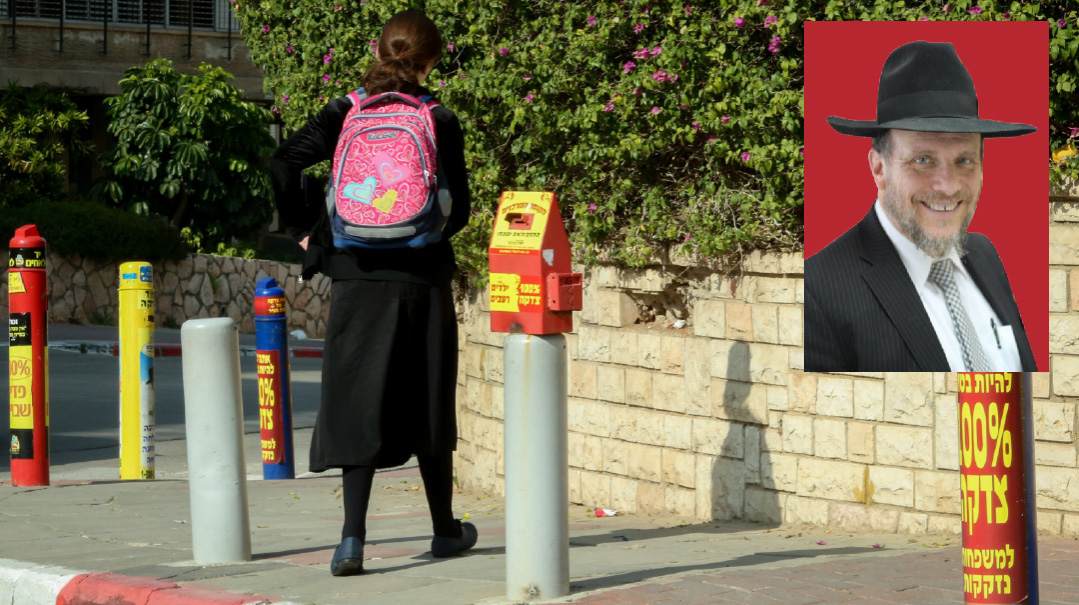“Can My Brother Dictate Which Books My Kids Bring on Family Vacations?”

What are the values that we share? How can we all work together and enjoy each other’s company?

Question
Over the summer, we often spend time at my parents’ vacation home along with one of my siblings, who has become more chassidish and is raising his family in a way that is more sheltered than mine. He asked that I take his standards into consideration during this shared vacation time and only bring along books or toys that he would allow his children to be exposed to. Is this even fair? It’s not like we raise our children in a way that is anti-Torah…. And it’s not his own home!
Answer
Please forgive me if I address this question from a relationship perspective rather than a chinuch one.
You ask about rights and fairness. You’re also concerned with how you’re perceived, and you want to be validated that the way you raise your children is not “anti-Torah.”
Let’s try to work this through. I’m going to assume that not only are you raising your children in a Torah environment, but that you expend enormous resources, financial and otherwise, to do so. You pay tuition to send them to good schools and camps. Your children probably don’t have Internet access at home, and if they do, you most certainly have a serious filter to try to protect them.
All that being said, your sibling may have set higher standards for his family to safeguard values that are important to him. We can all accept that even in a loving, united family, different members may hold themselves and their children to different standards.
On a practical level, how do such situations play themselves out? In your case, for example, what happens when you get together at your parents’ summer home? You feel threatened that you will be judged or looked down upon; your brother feels scared that his children will be exposed to things he wants to be careful about. Moving past these fears to the goal of retaining a loving and mutually respectful relationship requires that you ask yourself different questions.
What are the values that we share? How can we all work together and enjoy each other’s company? What activities can we plan for the girls? What can we plan for the boys? We all know how imperative it is to keep children busy and productive. Bored kids are as dangerous to each other as improper books. Without prior planning, the environment becomes a breeding ground for challenge and destruction. When people sit around and just while away their time, lashon hara, leitzanus, and machlokes flourish.
Ah, very nice, you might be thinking, but the bottom line is, who will make the “sacrifices”? Who will “give in”?
The answer is very simple, and it has nothing to do with who is right or who is wrong: It’s the one for whom this family get-together is important.
If no one is willing to accommodate the other’s position, because either or both of you determine that it would be wrong to compromise on your values, then maybe you need to change the venue of your vacation. The last thing you want to do is to spend time together resenting the other’s presence. Be honest with yourselves and each other; going up to the mountains for Shabbos together and splitting up the remaining time may be the right thing to do.
At risk of saying something unpopular but necessary, once the kids get older, that might become the prudent arrangement in any case. Let’s talk about cousins. There is great beauty in extended family. And as with most wonderful things in life, boundaries determine how wonderful and beautiful they remain.
There is the famous anecdote of the boy from Lakewood who met his friend while on a date.
Discomfited, he quickly said, “Hi, Yanky, this is my cousin.”
To which Yanky replied, “Yes, I know, she was my cousin last week.”
Often, even frum Yidden with very upright values forget that cousins of opposite genders are actually no different from “friends” of different genders. The rule of thumb needs to be that an older child hanging around with anyone that he or she is halachically and socially allowed to marry is usually crossing the boundary of appropriateness. As I mentioned, I know this opinion might not sit well with many people, but if we cannot engage in straight talk and be honest in the discussions on these pages, we are beating around the bush.
Please, let no one say that I am against family reunions, simchahs, and all kinds of family functions. My rebbi, Rav Wolbe ztz”l, believed in the value of extended family. Knowing that you are part of something bigger than yourself can give you an important sense of belonging. We need to support and encourage extended family bonds, within the framework of Torah and halachah. Even bigger than my relationship with my aunts, uncles, and cousins is my connection to Klal Yisrael and our mesorah. Relationships that cultivate our connection to Klal Yisrael and our mesorah are of ultimate value. Relationships that challenge those connections shouldn’t be encouraged.
In Michtav MeEliyahu, Rav Dessler ztz”l shares a wonderfully deep thought, explaining why it’s only possible to merit living in Eretz Yisrael through yissurim — painful challenges. Anyone who comes to Eretz Yisrael and has a proclivity to growth will automatically see great accomplishments, Rav Dessler explains. But the downside, he continues, is that one may become prideful and look down at others who aren’t on his level. And then, he says, everything one achieved from living in Eretz Yisrael would be ruined and lost. Therefore, Hashem give this growth-seeking person difficulties to keep him humble and thereby not allow his spiritual achievements to be ruined by pride.
In families especially, we need to be less judgmental, and more accepting, respectful, and understanding. You and your brother should read this together and figure out how you can make this work.
If we learn to respect all Yidden, to love them for their connection to HaKadosh Baruch Hu, all the while holding on to that which is emes and real, there are very few things that families cannot overcome.
Rabbi Zecharya Greenwald is a world-renowned educator and lecturer and the author of Preparing your Child for Success (ArtScroll/Mesorah). He founded Darchei Shalom Educational Center, an alternative high school for boys at risk, in Israel 33 years ago, and 23 years ago he founded Me’ohr Bais Yaakov Teacher’s Seminary in Jerusalem, where he currently serves as dean.
This column will appear monthly
(Originally featured in Mishpacha, Issue 924.
Oops! We could not locate your form.







